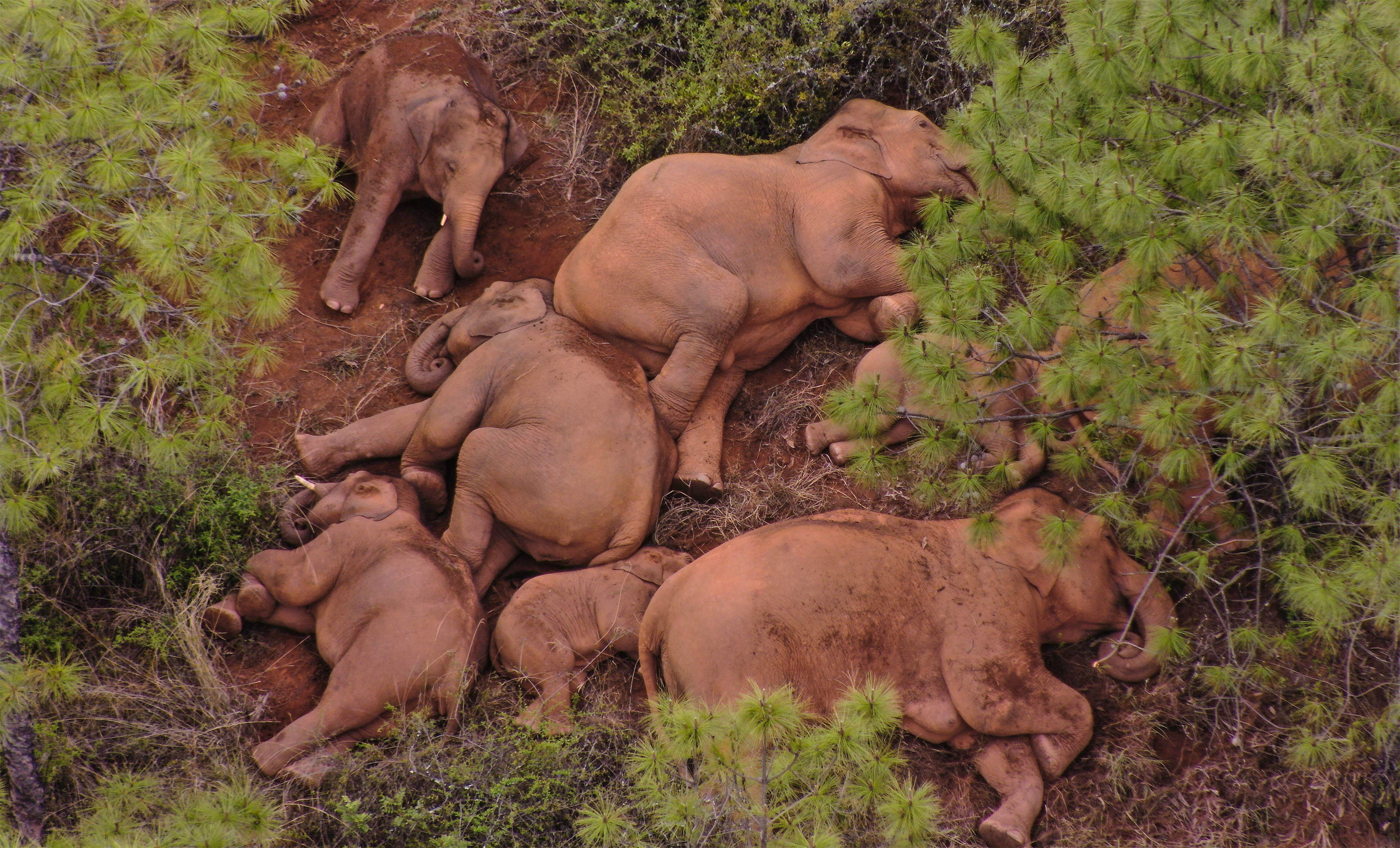Baby elephant abandoned by internet-famous herd has been rescued
Locals found the baby elephant found alone on a tea plantation with an infected leg injury.

An injured baby elephant that was abandoned by its herd in China has been rescued by a local animal rescue group, according to recent news reports.
The youngster is likely part of a herd of Asian elephants (Elephas maximus) that became famous in June after the group made an unusually long trek across Yunnan province, according to the French news agency AFP. The herd set off last year from their nature reserve near China's southwest border with Myanmar and journeyed more than 310 miles (500 kilometers) to Kunming, the capital of the Yunnan province.
On Saturday (July 10), locals discovered that the pack had left an injured baby elephant that was born during that trek, according to AFP. They found the baby elephant, which weighed around 397 pounds (180 kilograms), alone on a tea plantation with an infected leg injury. Local rescuers applied disinfectant to the baby elephant's leg and brought the animal to a rescue center. They also gave the animal antibacterial and anti-inflammatory drugs.
Related: Elephant images: Largest land animals
"It's possible that something like rattan spines pricked it and the injuries slowly became infected," Bao Mingwei, director of the Asian Elephant Breeding and Rescue Center, told CCTV, as reported by AFP.
The baby elephant's injury could have been life-threatening without treatment, state broadcaster CCTV reported, according to AFP. But with proper care, the elephant should recover, Mingwei said.
Authorities have been monitoring the elephant herd 24 hours a day, using both ground-based surveys and flying drones, according to The Guardian. The pack became famous, and millions tuned in to livestreams of the animals as they trekked across southwest China, according to CNN.
Sign up for the Live Science daily newsletter now
Get the world’s most fascinating discoveries delivered straight to your inbox.
The troop posed problems for local people, trampling crops and causing more than $1 million in damage. The elephants also stole food from villagers and forced evacuations along their path, according to AFP.
It's not clear why the elephants left their nature reserve in the first place; some experts have proposed that shrinking rainforest habitats are to blame, while others suspect the pack is just lost, according to CNN. Agriculture has shrunk elephant habitats over the past few decades, leading many of the animals to search for food elsewhere, according to CNN.
"The traditional buffer zones between humans and elephants are gradually disappearing, and the chances of elephants' encountering humans naturally increase greatly," Zhang Li, a wildlife biologist and professor at Beijing Normal University, told the Global Times, a Chinese news outlet.
The country's wild elephant population has doubled since the 1990s, according to Time magazine. But China's elephant habitat has shrunk by nearly two-thirds since then.
Originally published on Live Science.

Yasemin is a staff writer at Live Science, covering health, neuroscience and biology. Her work has appeared in Scientific American, Science and the San Jose Mercury News. She has a bachelor's degree in biomedical engineering from the University of Connecticut and a graduate certificate in science communication from the University of California, Santa Cruz.









